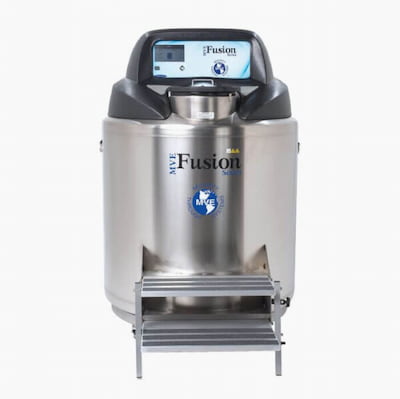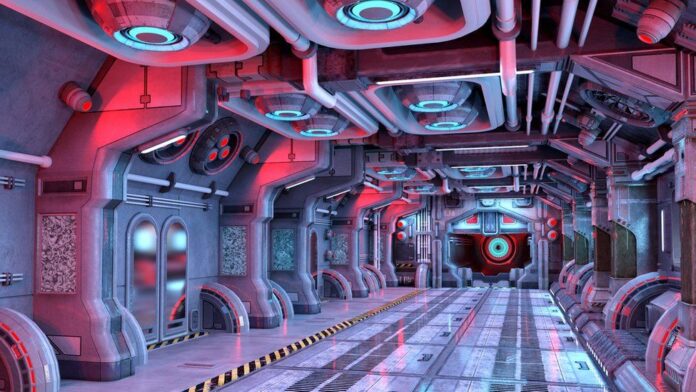Cryogenic freezers play a pivotal role in a range of scientific, medical, and industrial applications. These sophisticated refrigeration systems, operating at sub-zero temperatures, are designed to safely store biological samples, making them indispensable in the field of scientific research and healthcare. This comprehensive article offers a deep dive into the world of cryogenic freezers, their functions, benefits, challenges, and their increasing relevance in modern science.

Deciphering Cryogenic Freezers
A cryogenic freezer, also known as an ultra-low temperature (ULT) freezer, is a device that preserves biological samples at extremely low temperatures, typically between -150°C and -196°C. They’re widely used in labs and research facilities for the storage of items such as cells, tissues, DNA samples, and other biological materials.
The Role of Cryogenic Freezers
Scientific Research
Cryogenic freezers are essential in scientific research, particularly in the field of biology and biochemistry, for preserving samples for long periods without degrading their cellular structure or genetic material.
Healthcare and Pharmaceuticals
In healthcare, cryogenic freezing is used to store human tissues, stem cells, and other samples for future use. It’s also crucial in the pharmaceutical industry, especially in the storage of vaccines, which often require ultra-low temperatures to maintain their efficacy.
Industrial Applications
Cryogenic freezers also have industrial applications, such as cooling superconductors for magnetic resonance imaging (MRI) machines, and storing samples in materials testing and metallurgical studies.
Understanding the Functioning of Cryogenic Freezers
Cryogenic freezers use either mechanical refrigeration or liquid nitrogen to achieve ultra-low temperatures. They are designed with multi-stage cooling systems and high-grade insulation to maintain stable temperatures and protect stored materials from temperature fluctuations.
Benefits of Cryogenic Freezers
The major advantage of cryogenic freezers is their ability to preserve biological and other materials without degradation over long periods. They also offer high storage density, making them cost-effective for institutions with large sample volumes. Furthermore, modern cryogenic freezers come with sophisticated monitoring systems that ensure temperature stability and send alerts in case of system failures.
Challenges and Considerations
Despite their benefits, cryogenic freezers also pose certain challenges. They require significant energy, making them expensive to run. Furthermore, the extreme cold can be hazardous, requiring appropriate safety measures. Lastly, they require regular maintenance to ensure optimal performance and prevent costly breakdowns.
Technological Advancements in Cryogenic Freezers
Cryogenic freezing technology has evolved significantly over the years. Newer models are more energy-efficient and come with smart features like remote monitoring, automatic defrost, and data logging. Cryo-EM, a type of electron microscopy where samples are viewed at cryogenic temperatures, represents an exciting advancement in the field.
Conclusion
Understanding the role of cryogenic freezers involves more than just comprehending the technology. It requires an appreciation for the critical tasks these devices perform, enabling progress in various fields of science, medicine, and industry.
Read Also
- Automated Healthcare Software Solutions: How Intelligent Platforms Are Redefining Clinical, Administrative, and Operational ExcellenceThe healthcare industry is undergoing a seismic transformation. Rising patient volumes, value-based care models, staffing shortages, and complex regulatory demands have prompted organizations to look beyond traditional tools and embrace advanced software automation. As providers search for innovative partners capable of tailoring these sophisticated systems to real-world workflows, many turn to MCSI (Managed Care Systems,… Read more: Automated Healthcare Software Solutions: How Intelligent Platforms Are Redefining Clinical, Administrative, and Operational Excellence
- Why Whole Slide Imaging Shapes the Future of Digital PathologyWhole slide imaging has become one of the most important developments in modern pathology. It changes how tissue is examined, how cases are shared and how pathologists collaborate with the wider care team. More than a technological upgrade, it represents a shift in how laboratories think about their workflow, their storage needs and the tools… Read more: Why Whole Slide Imaging Shapes the Future of Digital Pathology
- Comparing 2025 Dental Practice Management Software OptionsSoftware Key Strengths Potential Limitations Best For Dentimax • Offers both cloud-based and on-premise/server deployment. • Tight integration between imaging (e.g. X-ray sensors) and practice management, charts, treatment planning, imaging all in one. • Transparent pricing and relatively simple UI/usability; solid for small to medium general practices. • May lack some of the… Read more: Comparing 2025 Dental Practice Management Software Options
- Top Innovations in Dermatology and Skincare TechnologiesHave you ever wondered how skincare keeps getting better year after year? From fighting acne to reducing wrinkles, today’s treatments seem more advanced than ever before. The tools and techniques used by dermatologists today are smarter, safer, and more effective than those we had just a few years ago. These breakthroughs don’t just help with… Read more: Top Innovations in Dermatology and Skincare Technologies
- Telehealth and Beyond: Building a Connected Continuum of CareHealthcare is on the verge of a radical transformation. Technology no longer simply supports medicine; it actively shapes how care is delivered and experienced. Achieving a seamless continuum demands more than deploying tools—it requires intentional design, coordinated teamwork, and innovative platforms that adapt to diverse clinical and patient needs. This article explores key strategies for… Read more: Telehealth and Beyond: Building a Connected Continuum of Care
- Optimizing CT Protocols: The Hidden Key to Efficiency and Cost Savings in RadiologyIntroduction: Why CT Protocol Optimization Matters Computed Tomography (CT) is a cornerstone of modern diagnostic imaging, providing critical information across nearly every medical specialty. However, maximizing the value of CT — both clinically and financially — requires more than just advanced hardware. The real secret lies in the optimization of CT protocols. When CT protocols… Read more: Optimizing CT Protocols: The Hidden Key to Efficiency and Cost Savings in Radiology







